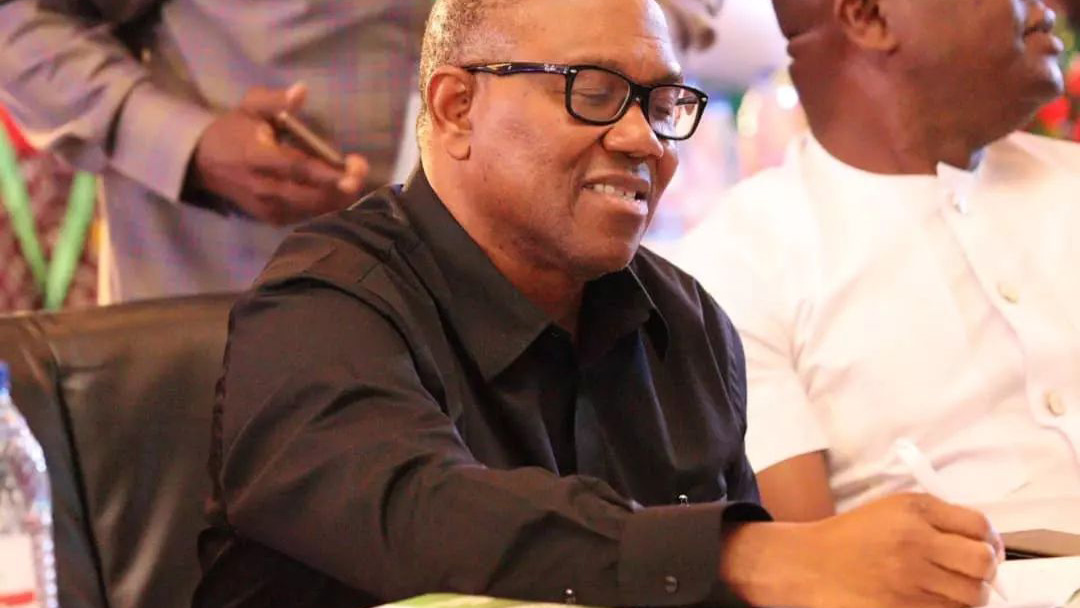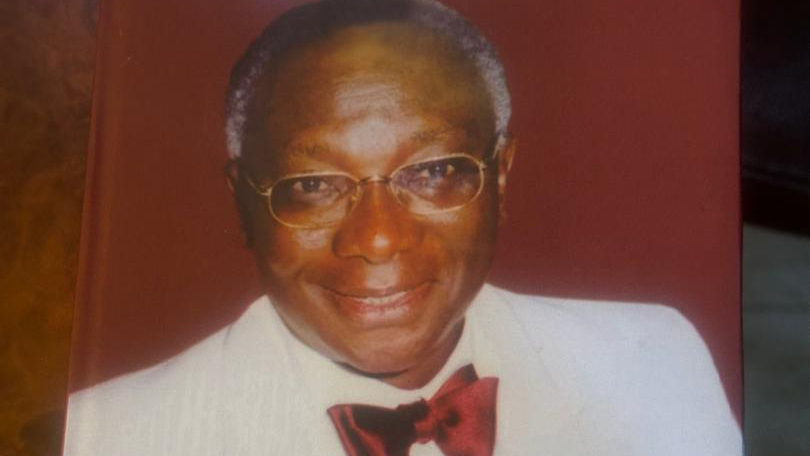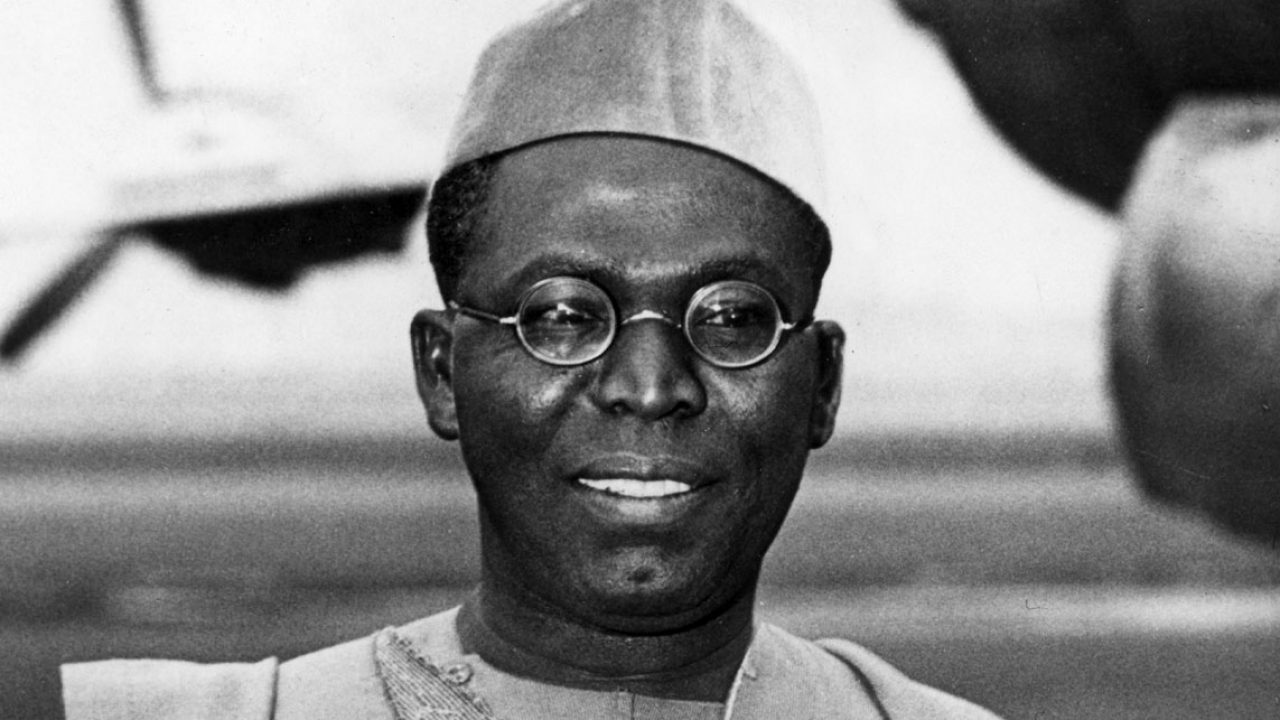
The parties have had their primaries during which they elected or selected the men and women who are to carry the flags of their parties into battle. Eighteen presidential candidates have been recognised by INEC as those approved to contest for the chair at the Aso Rock office of the president.
In 1999 there were only two presidential candidates but the figure rose to 20 in 2003 and 27 in 2007 while the 2019 figure was an absurd figure of 73.
Even now that INEC has approved 18 presidential candidates for the contest only three seem to dominate the headlines. In presidential contests, headlines never lie. Apart from the ruling party APC and the main opposition party PDP, the Labour Party is coming on strong as an authentic Third Force.

In the past elections, we heard stories of several parties banding themselves together to form the Third Force but they made no significant impact on the election.
This time around there seems to be a credible buzz around the Labour Party not only in social media but also on the ground. This party led by Professor Pat Utomi seems to have done its homework well. They held a grand gathering in Abuja sometime in May to discuss how a new Nigeria should emerge and the sort of fellows that ought to be at the barricades.
Eventually, the party chose Peter Obi, a prudent manager of resources and a notable and practical economist who has a reputation for leaving behind when he left Anambra State a sizeable sum of unencumbered funds as its governor.
The rallies that Obi has held so far are generating hordes of attendees, especially youths. If this show of strength translates into voting power then the 2023 election will be close to calling.
The buzz words of the Obi campaign are enticing: Let’s take our country back. Many Nigerians are of the view that some fellows have taken the country away from the path of modernity, progress, equity and fairness and the time to take it back is now. But elections are not simply about sloganeering.
If the Labour Party wants to beat the two main parties it has to work extra, extra hard, to convince the voting public that it will be different, drastically different, from the two parties that have run Nigeria since 1999.
Even though the various media have been setting the governance agenda for the politicians it is important to refresh their memories by restating the major issues that must receive the undivided attention of the politicians if they want the voters to queue behind their parties.
The most important item on the agenda is restructuring the country to work for the benefit of all its people.
The present unitary system of government has failed and failed woefully. Our politicians must recognise and respect the country’s diversity. There must be a devolution of powers from the Centre to the federating units or sub-national governments.
This will not only enhance the chances of keeping Nigeria united but it will also give each sub-government the opportunity to exploit its strengths and use its comparative advantage to its advantage. This will involve increasing the functions and resources of the federating units.
This action will emphasise that the country’s diversity as a multi-ethnic, multi-lingual and multi-religious entity must be respected by all the constituent parts. This is what constitutes the country’s federal character. Today this country is not working and many people have described it as a failed state or one that is close to being that.
The most important problem facing Nigeria today is insecurity. No one who travels on the road is sure of arriving home safely without the possibility of his being killed or kidnapped for ransom. No one who boards a train today is certain that the train will get to its destination safely.
No one who works on his farm is certain that he will not be attacked by some people who want his piece of land for grazing their cattle. No one in any part of Nigeria is certain that he or she may not be a candidate for an internally displaced location tomorrow.
There are about three million internally displaced persons in Nigeria today and their situation in those camps is nothing short of miserable.
As I write today some of the Chibok school girls abducted in 2014 are still not rescued. As I write now some of the travellers in the ill-feted Abuja-Kaduna train are still being held several months after their abduction by their abductors.
President Muhammadu Buhari has just announced that insecurity will end by the end of this year. That will be a much cherished New Year present but insecurity is not halted simply by saying so. We have had myriads of promises that insecurity will soon be a thing of the past but here we are still sweating under its spell.
Let me say for the umpteenth time that we cannot successfully police this huge country with a single-tier police formation with operational command located far away from the local communities where crimes are committed.
Besides, the numerical strength of the Nigeria Police Force is far below the UN prescription of one policeman to 400 persons. That has necessitated the drafting of the Army into purely police duties and the Army’s strength is therefore depleted. It is therefore stretched severely in the handling of its major function.
It does appear that all sections and segments of the Nigerian community have now come to the inescapable conclusion that establishing state police is a desideration. It is up to Buhari, his advisers and the National Assembly to take the step necessary to effect this. If that doesn’t happen then it will be the lot of the government that will come into office in 2023 to do so with appropriate speed.
The second most important issue that the presidential candidates must address in their campaign is the crumbling economy. Virtually all the economic indices point to the fact that our economy is limping to put it kindly.
A high level of poverty is a major issue. We are told that we have overtaken India as the poverty capital of the world. That is a very dubious honour which has contributed to the escalation in insecurity. Inflation is above 20%. External reserves are ground low while external debt is sky high. Unemployment has seen hordes of employable young men and women roaming the streets without any evidence of job availability.
That too leads to crime. So it is obvious that the twin brothers, poverty and unemployment have contributed to the escalation in the insecurity situation.
The Nigerian currency has been significantly and ridiculously devalued unofficially by the unavailability of foreign currencies for imports in this largely import-dependent country. And because the production of goods is low, the prices of everything especially foodstuff have gone sky-high. A lot of Nigerians face the prospect of going to bed with empty stomachs every day. The growth in the population of the hungry is a danger to the country.
Our education is gradually going to the dogs, especially at the tertiary level. ASUU thought it can help in rescuing it by signing an agreement with the government in 2009. This agreement has brought a lot of headaches to those whose business is to implement it and bring some measure of improvement to our tertiary education.
For seven months now many of our universities have been shut due to the strike embarked upon by ASUU. The government is scratching its head in desperation looking for a solution but the solution is cash which is in short supply.
The government has moved from one desperate measure to another but the solution is not yet in sight. Our children are roaming the streets while their parents are groaning in frustration. No one knows when the lecturers will go back to work.
This long strike is strong evidence that our education is a mess and the presidential candidates must be ready to tell us how they will sort out the mess. Right now we are told that there are more than 20 million out-of-school children in Nigeria.
In 2018, according to UNICEF, Nigeria had 13.2 million out-of-school children. That means that within four years the figure has gone up by more than seven million. As the economy continues to limp this figure may likely go up as parents are sending their children out to hawk in the streets instead of sending them to school. That is a danger, a serious danger, waiting for us at the corner.
In the health sector, Nigeria is in a mess too. Nigeria has the second highest maternal deaths in the world, second only to India. Also, newborn deaths in Nigeria is 29 deaths per 1000; which is the 11th highest in the world. These figures may be actually understated because in the rural areas there are no records of these health issues. So we are actually flying blind. It is the unfavourable situation in the health sector that has led to an unhealthy level of medical tourism.
Today nobody in government mentions any longer the dreaded word “corruption.” That does not mean that corruption has gone away. It is there walking on four legs. The truth is that the government has lost the appetite for a fight against corruption which has reached even its major source of revenue, the oil industry. Oil theft, long known, has become a growth industry and the government seems to wake up late to its prevalence even though it has hordes of security operatives operating in the Niger Delta region.
This is a problem that seems wide-ranging and is probably an exertion engaged in by the high and mighty in business, politics, governance, and security.
If the government is willing to tackle it ferociously it can be reduced considerably. But it is a problem that will definitely outlast this government. So the presidential candidates must pay serious attention to it. They must also tell us what they intend to do with our four refineries.
Do they intend to sell them? Do they intend to retain them? Do they intend to build new ones? Or do they intend to go to bed, cover their heads with a blanket and sleep peacefully in the hope that the Aliko Dangote refinery will do the job of supplying fuel uninterruptedly to Nigerians so that the fraud pot called subsidy can be broken?
Our democracy is still tottering. The evidence is there. Crises in various parties. Court cases in various courts. Suspensions and expulsions of party officials. Election manipulation in various states where the ruling party in each state sweeps the polls in state-organised elections.
The buzz words in those elections are 100 percent. That means that only one party exists in that state. That is the dictatorship of our democracy. Such behaviours lead to the failure to have internal democracy. So how can we have genuine democracy at the national level if we do not have democracy at the local level.
These are some of the challenges that our country has been grappling with, with little or no success since 1999. Will the presidential candidates offer us ideas that can turn the country around? That is our expectation.






